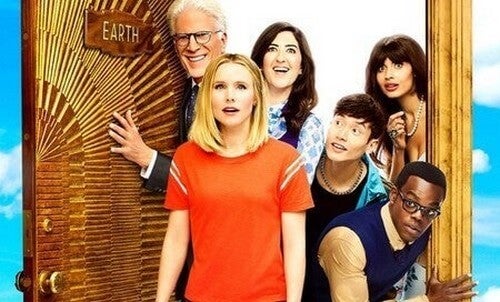We are all human and all human beings live and die, everyone is aware of it, but not everyone accepts this reality, is there any way to learn to accept the inevitable?Each culture faces this dilemma differently. In Buddhist tradition, for example, people live and die at the same time; it’s a unique experience. Other societies, on the other hand, regard death as taboo. In this article, we’ll see how The Good Place solves this problem.
Is there anything more inevitable than death? No one should be defeated to realize that it does not exist, but that everyone must develop resources and skills to overcome life-related situations. Understanding death does not mean avoiding grief, but rather becoming familiar with a fact as natural as life.
- Bertrand Williams.
- Considered by the Times as “the most important and brilliant moral philosopher of his time.
- ” suggested that if we were immortal we would lose all powers of surprise.
- It seems that everything is more satisfactory when there is an ending.
“Death is a lived life, is life a death to come?. – Jorge Luis Borges-
What should I know about death? Nothing or almost nothing; perhaps many euphemisms, perhaps metaphors and allegories. But should a philosophy aware of the finestitude of life reflect on death?an issue that infuriates many people and confronts them on the threshold of the unthinkable.
People tend to think that death is the end, but they don’t realize they die every day. Ramón Andrés, a Spanish essayist and poet, said that death can give us meaning and even an incentive to live, for some reason transcending our Vision of Life and acceptance of death seems to be an issue reserved for Eastern culture.
Perhaps what we know about the inevitability of death is the value it gives to life, but what happens after death?Everyone wants to know the answer to that question, but no one has been able to answer it, perhaps because no one has been able to formulate it correctly, accepting the inevitable remains one of humanity’s to-do tasks.
Philosophy deals with death in different ways, we were born to die, that’s a fact. However, it is impossible to know when and how this will happen, some people spend many years of their lives with these doubts.
Every step we take in life leads us down a path that brings us closer to death Do we choose the path to the imminent end?These questions intrigue philosophers, who have long debated the meaning of life and death. After all, as Seneca said, nothing is as safe as death.
Life and death look like a wave; the waves are born, formed, grow, and when they reach the coast, the water disappears and returns to the sea.
The Good Place series uses a different philosophical theory in each episode to show life’s essential moral problems, even if the protagonists are dead. This series brings us closer to one of the most frequently asked questions in human history: “What happens after we die??
Some people imagine a place where they can write down all their wishes and make them come true for all eternity, but what if there were limits? The Good Place series presents these scenarios that lead to unsatisfying nihilism.
The reality of the series is that the great minds of the universe have been bored for centuries, losing consciousness, without motivation to do anything but drink, we will not reveal the end of the series, we will simply say that it is a song of reconciliation between life and death.
Mortality gives meaning to life and morality helps guide that meaning. The existence of death makes us think about the role we play in the world and how our actions affect the people around us.
However, how to deal with the inevitable? This is an imperative and inevitable issue, because everyone, at different times in their lives, will have to deal with it one way or another.
The self-awareness of death gives meaning to life. -Aurelio Arteta

